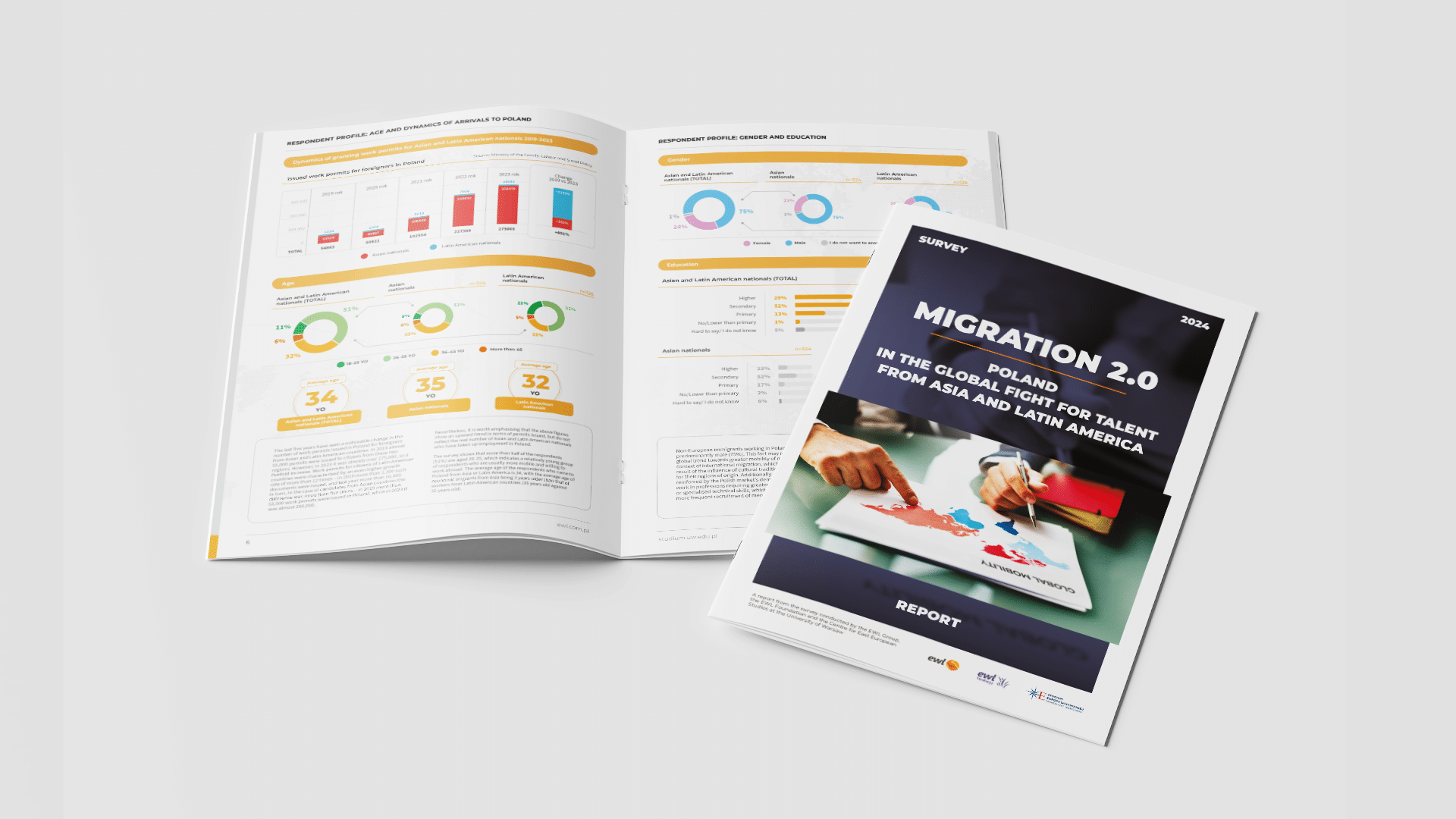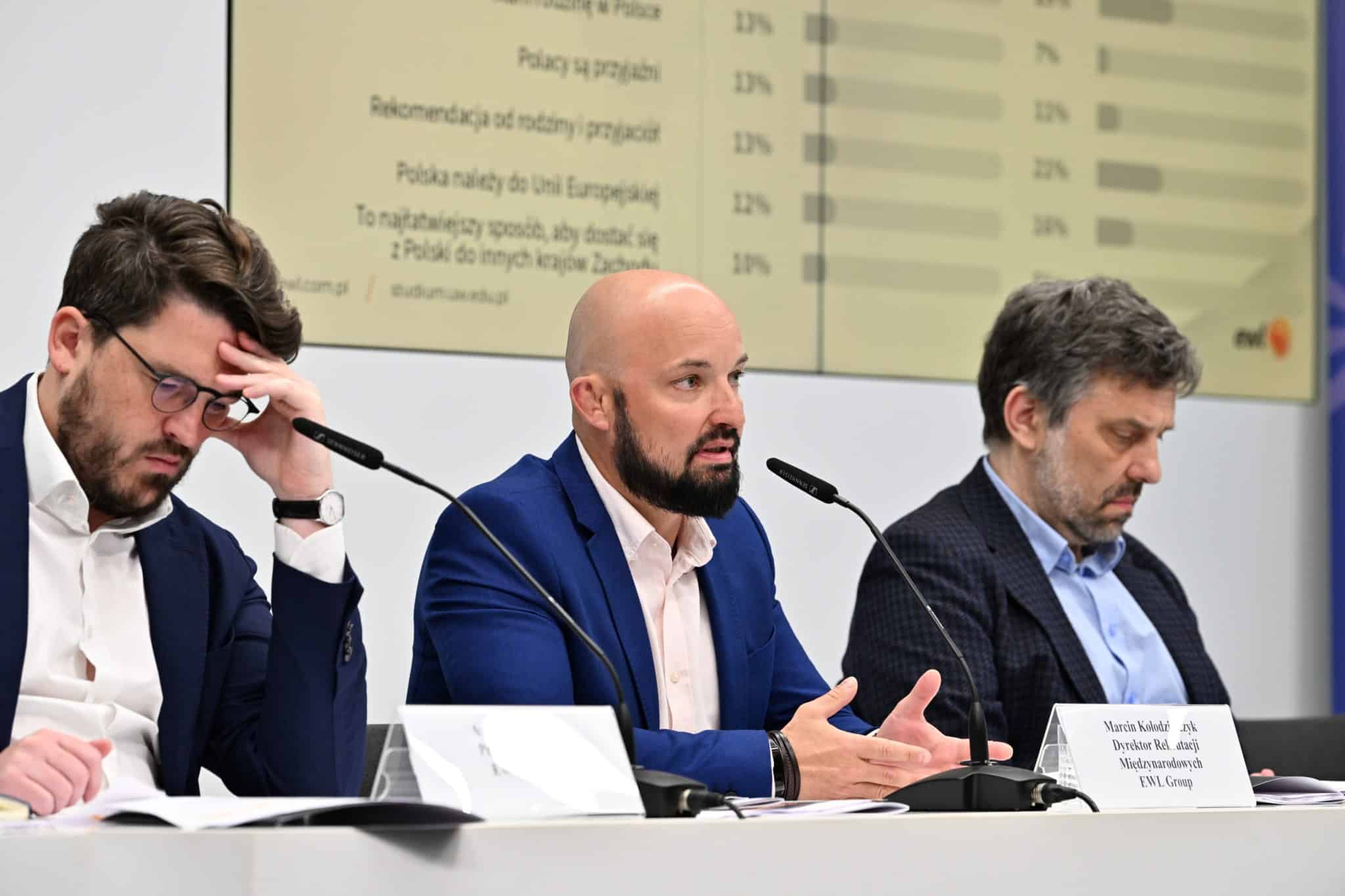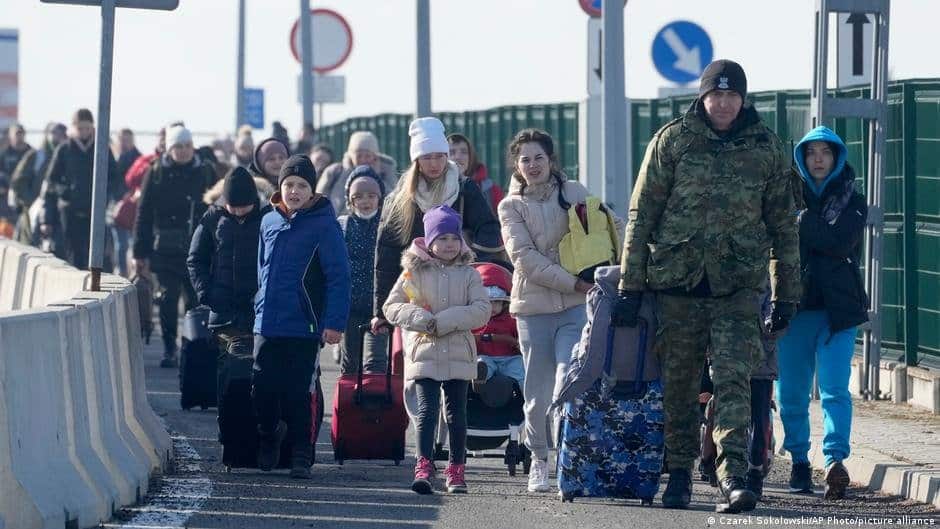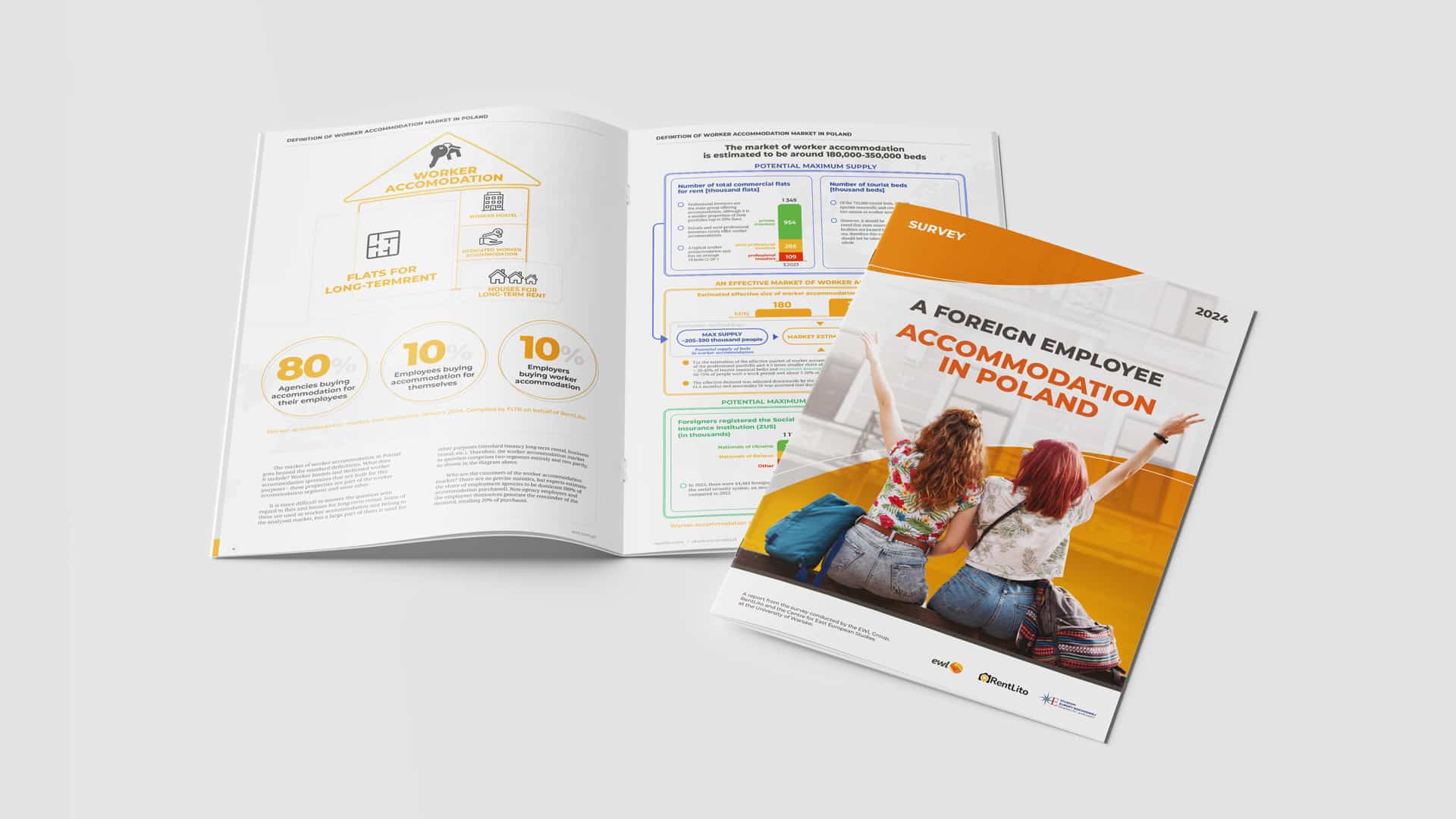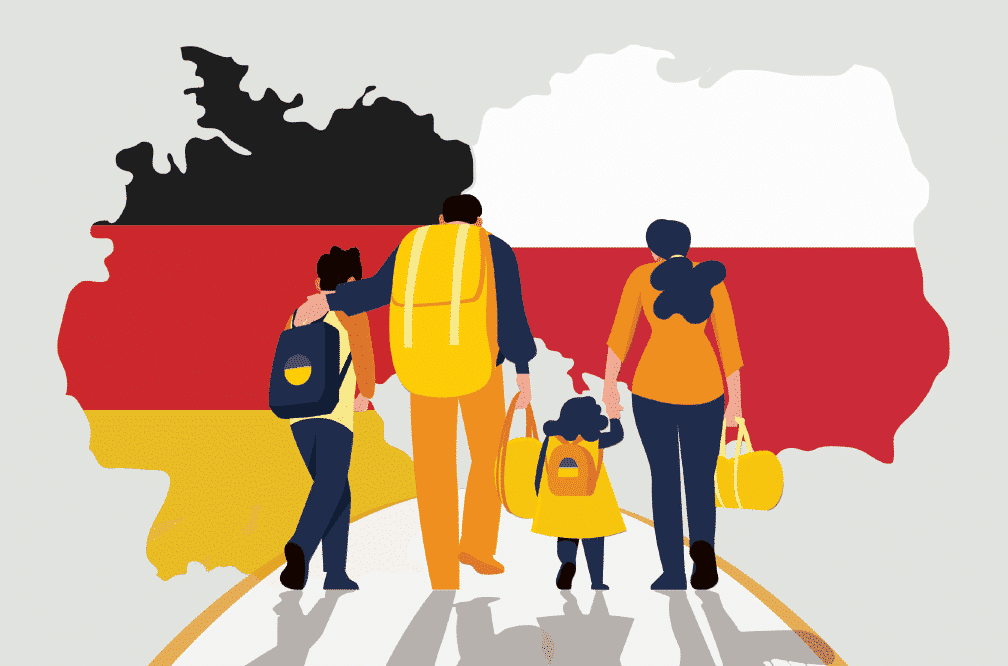
– Refugees from Ukraine have shown that they need a fishing rod, not a fish. Most do not want to live at the cost of their host societies, but are working or planning to take up employment, said Andrzej Korkus, president of the EWL Group, during the presentation of the report „Ukrainian refugees – Vocational activation in Germany and in Poland” at a press conference in Berlin that journalists, diplomats and politicians attended. The EWL Migration Platform conducted the report, Foundation for the Support of Migrants on the Labour Market EWL and the Centre for East European Studies at the University of Warsaw. It was the first study conducted among refugees from Ukraine who took up employment.
The report provides vital information about Ukrainian refugees who began working in Germany and Poland, including their education, language skills, plans for the future, and the sectors in which they currently find employment. – This report is a kind of barometer, an aid to understanding who the refugees arriving from Ukraine are. This report shows the true face of the refugees that came here, their motivation and their needs. We knew this more or less because we work with them every day, but now we have gained some complex data that we want to share with governments and labour authorities, said Andrzej Korkus, CEO of EWL Migration Platform, at the press conference in Berlin. – All the efforts start from the top, so we need to have a good understanding of the situation on the government level. It’s also the role of the press and the NGOs to deliver this message to the governments because this is in the interest of all, governments, societies and refugees, he added. – What the government should do is deregulation. Don’t make obstacles and remove obstacles for NGOs and the private sector. Those who work with refugees know their needs best, so support them, believes Korkus.
Refugees want to work
According to the Polish Ministry of Family and Social Policy, 615,000 Ukrainians have found work in Poland since the war broke out. In Germany, these figures are considerably smaller. The Ifo Institute for Economic Research from Munich estimates that about 160,000 refugees have taken up work in Germany. – Employing refugees also supports Ukraine. We estimated that only the Ukrainian citizens who were helped by our company to find employment send around €5 million a month to their families in Ukraine. So this is also some huge help in this fight, argues Andrzej Korkus.
Ukrainian refugees, on the basis of the EU directive, have comparable rights on the labour market in the member states as citizens of these countries. – This report shows that obviously there is a great need for allowing Ukrainians that are coming here to work, and this is their primal goal, said Michalina Sielewicz, International Development Director at EWL Migration Platform.
The first question of the report concerned the planned duration of stay in the country of temporary settlement. – We can see that actually, the results are very similar, when comes to Poland and Germany, if we sum up some categories like those they want to stay for a short period of time or a longer period of time then we are looking at 40% of respondents saying that they do want to stay for a longer period of time in the country of the destination that they are currently in, noted Sielewicz. – So we can obviously see that the majority still wants to return to Ukraine after the situation changes, after the war ends. Obviously, depending on what and when that’s going to happen, she added. Ukrainians who left for the Czech Republic and Romania after 24 February responded similarly.
Refugees are well educated
The survey shows that 68% of refugees in Germany have a higher or incomplete higher education, in Poland 59% of them can boast a similar level of education. – This is therefore a fantastic talent pool for German employers to tap into. 45% declared knowledge of the German language at various levels, Michalina Sielewicz emphasised. – In Germany, we see that the vast majority of Ukrainians have higher education, working below their degree or qualification level, Sielewicz noted. One in five Ukrainian refugees working in Germany speaks English at a good level, which, according to the authors of the study, may be due to the significant proportion of young people (16% are aged 18-25).
More than 70% of refugees who worked as high-level professionals in Ukraine, e.g. as managers, lawyers, doctors, are now working below their qualifications. – They are mostly in hotel services, catering, those jobs that are the fastest, easiest to get. And they don’t have high expectations in terms of language, Michalina Sielewicz pointed out in Berlin.
According to the CEO of the EWL, the Polish experience has shown that the employment of Ukrainian citizens supports both the economy of our country and the migrants themselves. The intention of the EWL Group is to share experience and technology with employers in other European countries, which have great potential to help Ukrainian refugees by integrating them into the labour market.
– The German market is probably the most competitive labour market in the EU. Employers can draw on a pool of candidates from all over the EU. So of course they are more challenging. They have higher standards. They expect, for example, as with most of the positions we see here, a basic knowledge of German, said Korkus. – The Polish labour market is less competitive. The report shows that wages are at a third of those here, he added. According to the report, the average monthly wage of refugees employed in Germany is €1,467 net, while in Poland it is €541 net.
The press conference took place in Berlin, 20.10.2022.
The report of the latest study “Refugees from Ukraine – Vocational activation in Poland and in Germany” is available in 4 language versions – Polish, English, German and Ukrainian. Our intention is to share our experiences with partners and clients in other European countries that have great potential for helping refugees from Ukraine.
A link to download the report can be found on our website: www.ewl.com.pl/en/.
For further information please contact Mr Anatoliy Zymnin, Spokesperson &PR Manager, e-mail: anatol.zymnin@ewl.com.pl, tel. +48 535 888 815.








